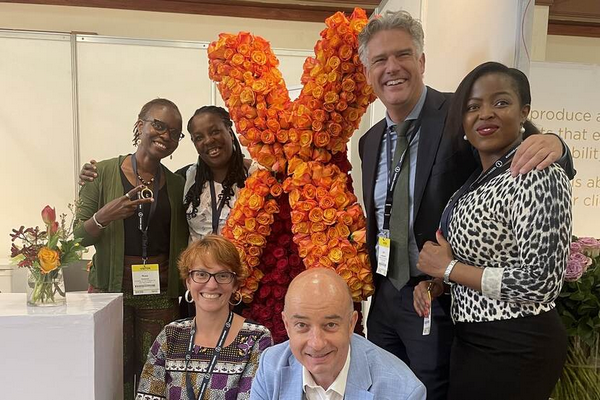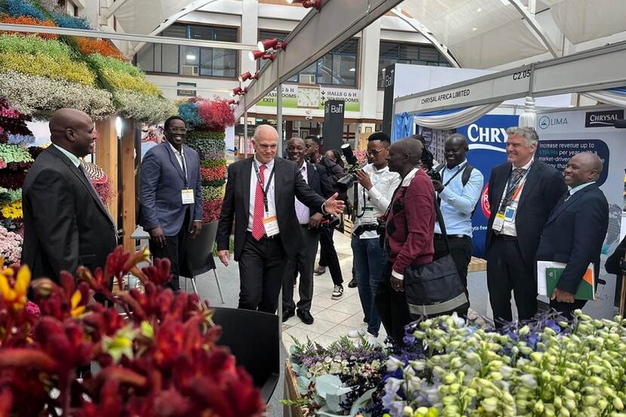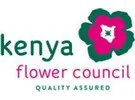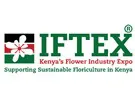The International Flower Trade Expo (IFTEX) 2024 in Nairobi highlights Kenya's floriculture industry and its partnership with the Netherlands.
IFTEX 2024, held in Nairobi from 4 to 6 June 2024, celebrated Kenya's floriculture industry and the role the sector plays for Kenya and her key trade partners. IFTEX serves as a platform for growers, buyers, and industry stakeholders to network, showcase innovations, and explore new business opportunities.
A highlight of this year's event is the enduring collaboration between Kenya and the Kingdom of the Netherlands, a relationship that is celebrating its 60th anniversary. Kenya's geo-positioning in the region plays a role in hosting international trade fairs and expos, such as IFTEX, that provide Kenyan growers with invaluable exposure and opportunities to forge new partnerships, expand their market reach, and stay abreast of the latest industry trends.

Kenya and the Netherlands share a history of collaboration in the floriculture sector. The Netherlands has provided technical assistance, investment, and market access to Kenyan flower growers.
One of the key collaborations is through Royal Flora Holland, the largest floral auction in the world, which has played a role in integrating Kenyan flowers into the global market. The Dutch Flower Group (DFG) has been actively involved in sourcing flowers from Kenya.
Kenya's floriculture sector has experienced growth over the years. The country's favorable climate, coupled with the help provided by Dutch collaborations, has enabled the production of a wide variety of flowers, including roses, carnations, and lilies. The sector contributes significantly to Kenya's economy, accounting for a substantial portion of the country's agricultural exports.
The Kenya Flower Council (KFC), established in 1996, has been at the forefront of promoting sustainable practices within the country. By setting standards and providing certification, KFC ensures that Kenyan flowers meet international quality and sustainability criteria. This commitment to sustainability has not only enhanced the global competitiveness of Kenyan flowers but also ensured environmental conservation and social responsibility.
Additionally, the collaboration with the Netherlands has led to the establishment of state-of-the-art facilities and infrastructure. These include modern greenhouses, advanced irrigation systems, and efficient logistics networks, all of which have significantly boosted the quality and volume of flower production in Kenya.

The council's commitment was reiterated by Christopher Kulei (Chairman, Kenya Flower Council). He noted that sustainability in the flower sector has evolved from a peripheral concern to a central pillar of business strategy.
Mr. Kulei: "Over the last several months, we've experienced unprecedented rains and flooding in Kenya. We all know the effects of the products, but we also lost hundreds of lives. We see floods happening in Germany, which emphasizes the importance of sustainable business practices in curbing the effects of climate change. Putting sustainability as a core part of each of our strategies is a must, and is quickly becoming a critical consumer expectation and demand. Today, we – the Kenyan Flower Council - reaffirm our dedication to sustainable floriculture."
The council members have invested significantly in reducing and recycling water usage, implementing biological pest management systems, utilizing solar energy, and adopting greener logistics to reduce greenhouse gas emissions. Additionally, they have embraced various carbon measurement tools, which have enabled the sector to accurately assess emissions and identify areas for improvement.
Despite the successes, Kenya's flower sector still faces several challenges, including climate change and weather variability, which threaten production and increase costs of production. Pest and disease management remains a persistent issue, with a reliance on chemical pesticides posing environmental and health risks. Market access and competition from other flower-producing and emerging countries require continuous quality improvements and effective marketing. Compliance with environmental and social standards, limited access to affordable financing, and a high rate of inflation further complicate the industry's landscape. Addressing these challenges is crucial for the sector's sustainability and global competitiveness.
For more information:
Kenya Flower Council
[email protected]
kenyaflowercouncil.org
IFTEX
www.iftex.org
